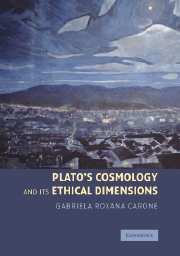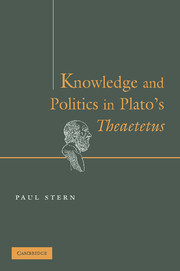Plato's Cosmology and its Ethical Dimensions
Although a great deal has been written on Plato's ethics, his cosmology has not received so much attention in recent times and its importance for his ethical thought has remained underexplored. By offering accounts of Timaeus, Philebus, Politicus and Laws X, the book reveals a strongly symbiotic relation between the cosmic and human sphere. It is argued that in his late period Plato presents a picture of an organic universe, endowed with structure and intrinsic value, which both urges our respect and calls for our responsible intervention. Humans are thus seen as citizens of a university that can provide a context for their flourishing even in the absence of good political institutions. The book sheds light on many intricate metaphysical issues in late Plato and brings out the close connections between his cosmology and the development of his ethics.
- Treats Plato's late cosmology in a comprehensive manner
- Discusses in detail the virtually unexplored relation between Plato's late cosmology and his ethics
- Provides a new basis for understanding Plato's late ethics and politics
Reviews & endorsements
"She has succeeded in establishing her overall thesis: that there is an inextricable connection between Plato's cosmology and his late ethics, and that it is only by modeling our own microcosmic natures and lives upon the larger, macrocosmic nature and life of the universe that we humans will find our own teleological fulfillment. To that extent, we are undeniably in her debt." - Donald J. Zeyl, University of Rhode Island
Product details
October 2005Hardback
9780521845601
334 pages
229 × 152 × 19 mm
0.62kg
Available
Table of Contents
- 1. Introduction
- 2. Demiurgy in the Timaeus
- 3. Cosmic God and human reason in the Timaeus
- 4. Creating mixtures in the Philebus
- 5. Cosmos and human happiness in Philebus
- 6. Reversing the myth of the Politicus
- 7. Cosmic and human drama in the Politicus
- 8. Good and evil in Laws X
- 9. Conclusion.





